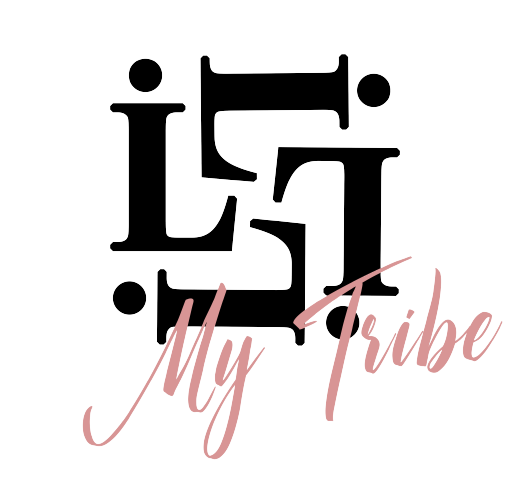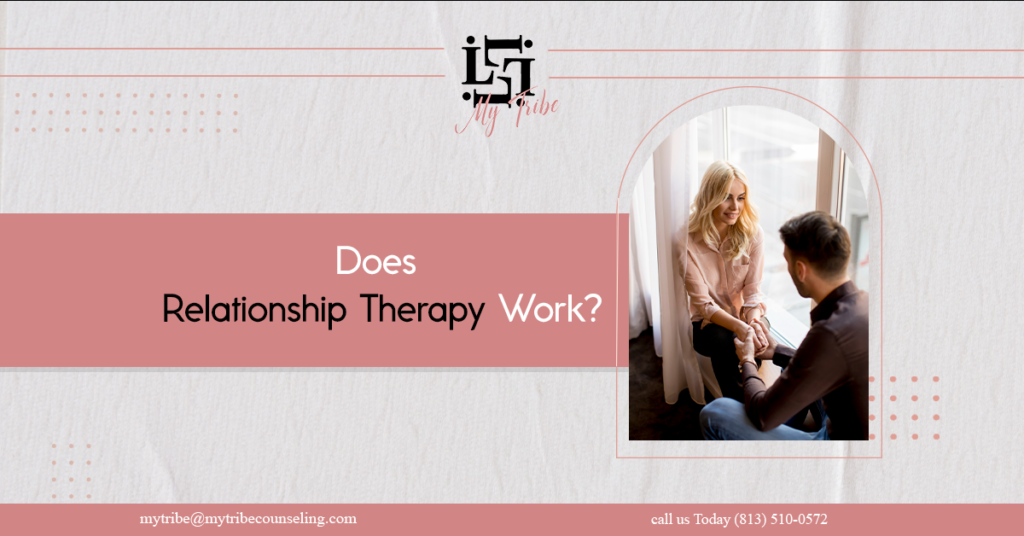Relationships can be tough. Even the happiest relationships have disagreements. They can also face frustrating times when partners don’t understand each other or feel disconnected. When problems pile up, you might ask: “Does relationship therapy work?”
People often seek relationship therapy. This therapy helps rebuild trust, fosters better communication, and brings back happiness. We will highlight how relationship therapy works. You will learn what to expect and why it might help you.
At My Tribe Counseling, we help you move from confusion to connection. We provide heartfelt support. Your journey to stronger relationships starts here, not walking alone. Contact us today.
What Is Relationship Therapy? A Simple Explanation
Relationship therapy helps guide one’s relationship, it provides a safe environment through which couples and individuals can share their concerns with a qualified therapist regarding their issues. The goal? To find solutions and learn skills to make your bond stronger. It’s not only for married couples. It also helps dating partners, family, or friends. Therapists stay neutral. They provide tools to help you solve problems together.
Does Relationship Therapy Work? Let’s Look at the Facts
So, does relationship therapy work? Studies say yes—for most people. Research shows 7 out of 10 couples feel closer and argue less after therapy. For example, couples who try therapy for relationship problems often learn to listen better, solve fights calmly, and rebuild trust after mistakes like lying or cheating. But success depends on effort. Therapy can make a big difference if both people stay open-minded and practice what they learn.
What Happens at Relationship Counseling? Your Questions Answered
Curious about the secrets of relationship counseling? Let’s unpack it together, step by step:
- First Session: The therapist will ask questions to grasp your story. What is causing stress? How do you argue?
- Spotting Patterns: They help you see habits that harm your relationship. For example, they may shut down during fights or blame one another.
- Learning New Skills: Practice using “I feel…” instead of “You always…”. Take breaks when you feel angry.
- Setting Goals: Maybe you aim to swap yelling for kindness, deepen your connections, or finally set free those past wounds.
Therapy isn’t about “winning.” It’s about finding solutions together.
Who Needs Therapy for Relationship Problems?
Therapy for relationship problems isn’t just for “broken” relationships. Here’s who can benefit:
- Couples stuck in arguments: If you fight about the same things (money, kids, chores) weekly.
- Partners feeling disconnected: Maybe you live together but feel more like roommates.
- People with past pain: If someone broke your trust (like through cheating), you find it hard to move on.
- Young couples: Young couples’ therapy helps newer relationships build healthy habits early.
The objective of relationship therapy is to educate sole participants about relationship enhancement methods, even when others show no interest.
Types of Relationship Therapy: Which One Fits You?
Not all therapy is the same! Here are common types of relationship therapy:
- Emotionally Focused Therapy (EFT): Focuses on emotional bonds. Great for couples who feel distant or unloved.
- Cognitive Behavioral Therapy (CBT): Changes negative thoughts (like “They’ll never change”). Helps with anger or jealousy.
- The Gottman Method: Uses fun exercises to boost friendship and intimacy.
- Imago Therapy: Explores how childhood affects your relationship patterns.
Your therapist will pick a style that matches your goals.
Young Couples Therapy: Why Start Early?
Young couples therapy is becoming popular—and for good reason. Many couples in their 20s and 30s face unique relationship issues, like:
- Balancing busy careers with quality time.
- Disagreeing about future goals (marriage, kids, where to live).
- Social media stress (comparing their relationship to others online).
Therapy helps them communicate clearly and avoid minor problems turning into big ones.
Relationship Therapy for Individuals: Can You Go Alone?
Yes! Individual therapy helps people change their habits, even without their partner’s involvement. For example:
- Learn to set boundaries with a demanding partner.
- Understand why you choose partners who do not respect you.
- Recover from a breakup or divorce.
Therapy gives you the skills to choose better. It also helps you feel safer in your relationships.
How to Make Relationship Therapy Work: 5 Easy Tips
Want the best results? Try these tips:
- Be Honest
Share your true feelings—even if they’re awkward.
- Listen Without Interrupting
Let your partner finish talking before you respond.
- Practice Between Sessions
Do the “homework” your therapist suggests, like daily check-ins.
- Stay Patient
Change takes time. Don’t expect miracles in one week.
- Celebrate Small Wins
Did you solve a fight without yelling? That’s progress!
Remember, does relationship therapy work? It can—if you’re willing to try.
When Should You Try Therapy for Relationship Problems?
Not sure if you need help? Look for these signs:
- You dread coming home because you’ll likely argue.
- You avoid talking about certain subjects, such as money or family, to keep things calm.
- Loneliness lingers, casting shadows even when together.
- Trust has been damaged, you have no idea how to mend it.
Common Fears About Relationship Therapy (And Why They’re Wrong)
Many people avoid therapy because of worries like:
“The therapist will blame me.”
Truth: Good therapists stay neutral and help both people improve.
“Therapy is too expensive.”
Truth: Many clinics offer sliding-scale fees or online sessions at lower costs.
“We’re too busy.”
Truth: Sessions can be weekly, biweekly, or even monthly—you choose the pace.
What If Your Partner Refuses to Go to Therapy?
If your partner won’t join, relationship therapy for individuals is still helpful. You’ll learn how to:
- Communicate your needs calmly.
- Stay calm during arguments.
- Decide if the relationship is healthy for you.
Sometimes, changing your behavior can improve the whole relationship.
Conclusion
So, does relationship therapy work? The answer is yes—for couples willing to try new ways of connecting and individuals ready to grow. Whether you’re exploring types of relationship therapy, dealing with relationship issues, or considering young couples therapy, help is available. You don’t have to wait until things feel “bad enough.” Therapy gives you tools to build a stronger, happier relationship, one step at a time.
FAQs
What is relationship therapy?
It’s when you talk to a trained helper (therapist) to fix problems in your relationship. You learn to communicate better and solve fights.
Do we have to talk about private stuff?
Only share what you’re comfortable with. The therapist won’t force you to talk about secrets.

